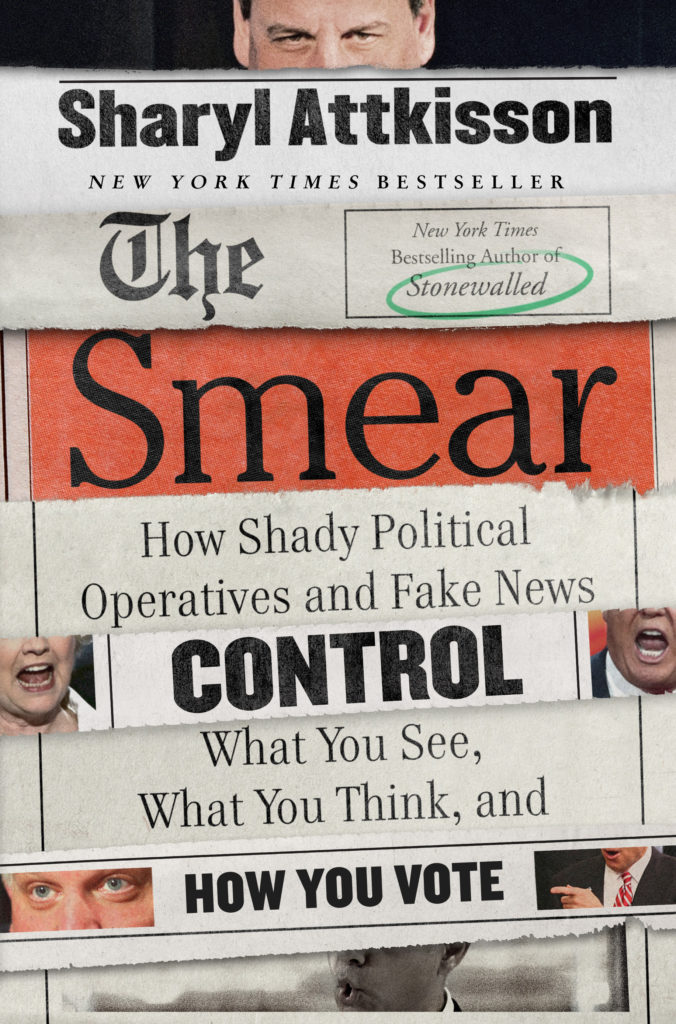Op-Ed: US Government Autism-Vaccine Link Denial is Based on a Malicious Fallacy

Note: Views in this and any other opinion piece that appear on this site do not necessarily reflect the opinion of www.sharylattkisson.com and are solely those of the author.
By Jake Crosby, MPH
U.S. public health officials like National Institutes of Health doctor Anthony Fauci deny the vaccine-autism link by repeating disinformation about a seminal autism-vaccine study. That study, published in The Lancet in 1998, examined 12 children treated at London’s Royal Free Hospital Medical School. Most developed adverse symptoms shortly after their routine measles-mumps-rubella (MMR) vaccinations.
The study marked the beginning of the first major research undertaking of the autism-vaccine link at an academic institution. Because parents were startled by the findings, and—in my opinion— because there were huge financial implications in terms of possible lawsuits against vaccine makers, the study and its lead author, Dr. Andrew Wakefield, were targeted in a giant campaign to discredit them. Those pursuing this smear campaign, not surprisingly, have ties to vaccine maker GlaxoSmithKline.
One of those people was the Head of Medicine at Royal Free Hospital from 1999-2011, Dr. Mark Pepys. He wanted to stop Dr. Wakefield’s work but the witch hunt would look too obvious if the accusations came directly from the medical school that forced him out two years prior. So Dr. Pepys would need a journalist who could take credit for those accusations while insulating the medical school from scrutiny by being the journalist’s protected “source.”
To begin the smear, medical records of children in the study were leaked to a Sunday Times journalist named Brian Deer. He received children’s names, family backgrounds and hospital admissions dates. Deer would later boast about having this information in the BMJ. In 2004, he posted a child’s medical note and a table of children’s names and the dates they were admitted to the Royal Free on his website. This was a serious violation of medical privacy rules, laws and practices. According to study co-author Simon Murch, “the Data Protection Act must have been broken.”
Dr. Pepys had strong ties to GlaxoSmithKline even before the merger that created the company, enjoying substantial support from precursor Glaxo Wellcome. Before he accepted the position of Head of Medicine of the Royal Free in 1999, he demanded Dr. Wakefield’s dismissal. Dr. Pepys ultimately took credit for ousting Dr. Wakefield at Royal Free Hospital in 2001, effectively dismantling the first autism-vaccine research unit in an academic institution.
After the 1998 study’s publication, Dr. Wakefield’s co-author Dr. Simon Murch was promoted to Director of the Centre for Paediatric Gastroenterology at Royal Free Hospital. Then, in September 2003, Dr. Murch submitted a letter to The Lancet repudiating the notion of any possible link between autism and vaccines. His submission came just two months after Crispin Davis, CEO of Lancet publisher Reed Elsevier, joined the board of directors at GlaxoSmithKline.
With Dr. Murch’s repudiation, the United Kingdom (UK) government’s Legal Aid Board cut off financial aid to help victims in lawsuits against MMR manufacturers, including GlaxoSmithKline. The GlaxoSmithKline alliance with Pepys-headed Royal Free Hospital and the Davis-published Lancet continued as Deer continued to advance the smear. In his reports, Deer claimed Dr. Wakefield’s study was unethical and that he concealed its funding source. The latter claim was “found proved” by a disciplinary tribunal but ultimately overturned by a judge.
Deer also took an unusual step for a journalist: he filed a professional disciplinary complaint against Dr. Wakefield and two of his co-authors including Simon Murch.
A week after the complaint, 10 of the 13 Dr. Wakefield’s co-authors, led by Dr. Murch, issued a fraudulent retraction of the interpretation of the 1998 study. It was a statement of regret over raising an autism-vaccine link possibility that was falsely portrayed as a scientific retraction.
After the fraudulent retraction, vaccine interests falsely misrepresented it as if it was a scientific repudiation of any link between vaccines and autism. That retraction became a basis for rejection of thousands of vaccine autism injury claims in U.S. vaccine court.
Then, the smear machine prompted a medical fitness-to-practice tribunal of Dr. Wakefield. Dr. Wakefield’s medical license was revoked in 2010. The chair of that tribunal, Dr. Surendra Kumar, was a GlaxoSmithKline shareholder. After that decision in 2010, “The Lancet” fully retracted Dr. Wakefield’s study.
Ultimately, in 2012, a High Court overturned the reasons of unethical research and misrepresented participant enrollment that remains stated in The Lancet retraction. Unsurprisingly, “The Lancet” has not reversed its retraction.
So today, health officials across the pond here in the U.S., including Dr. Fauci and his superior, NIH Director Dr. Francis Collins, continue to cite the false retraction as if it scientifically proves vaccines do not cause autism. They ignore the factual details on the excuse of “The Lancet” journal’s undeserved reputation.
Jake Crosby has a Master of Public Health degree in epidemiology from George Washington University and is editor of AutismInvestigated.com.
Editor’s Note: Crosby received no response for comment from the relevant officials mentioned in his op-ed.
A diverse group of Constitutional free press and privacy advocates is supporting Attkisson v. Dept. of Justice/FBI to fight the government computer intrusions. Click here to support.
For government resources and more reports on vaccines and other medical issues, visit: https://sharylattkisson.com/medical-vaccine-links/
![]()
Original source: https://sharylattkisson.com/2019/02/17/op-ed-us-government-autism-vaccine-link-denial-is-based-on-a-malicious-fallacy/
See comments at original source: https://sharylattkisson.com/2019/02/17/op-ed-us-government-autism-vaccine-link-denial-is-based-on-a-malicious-fallacy/#respond







